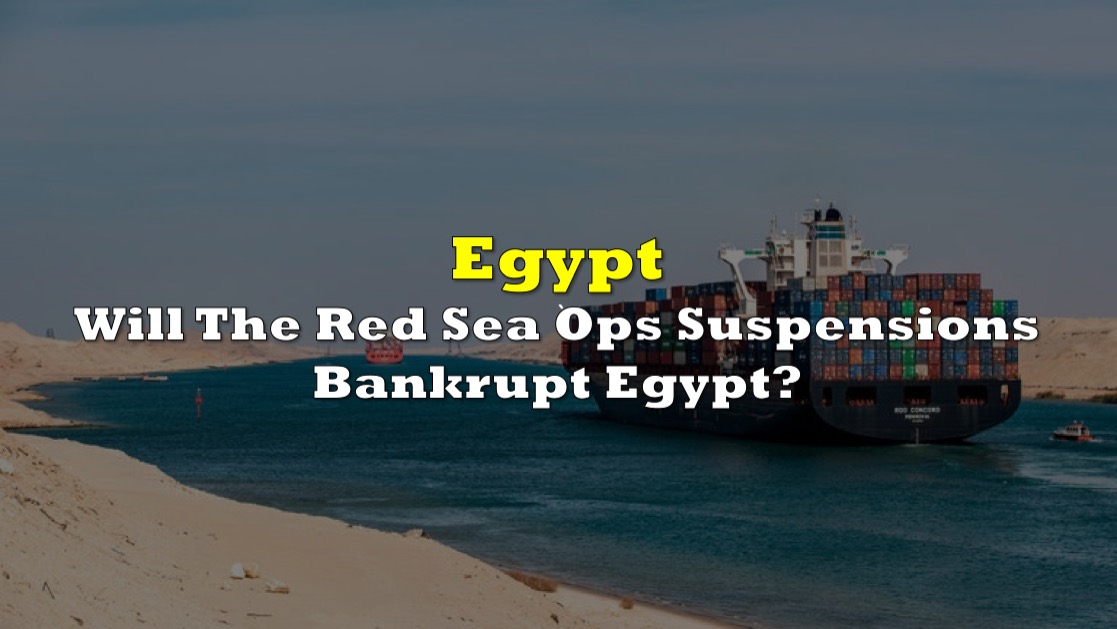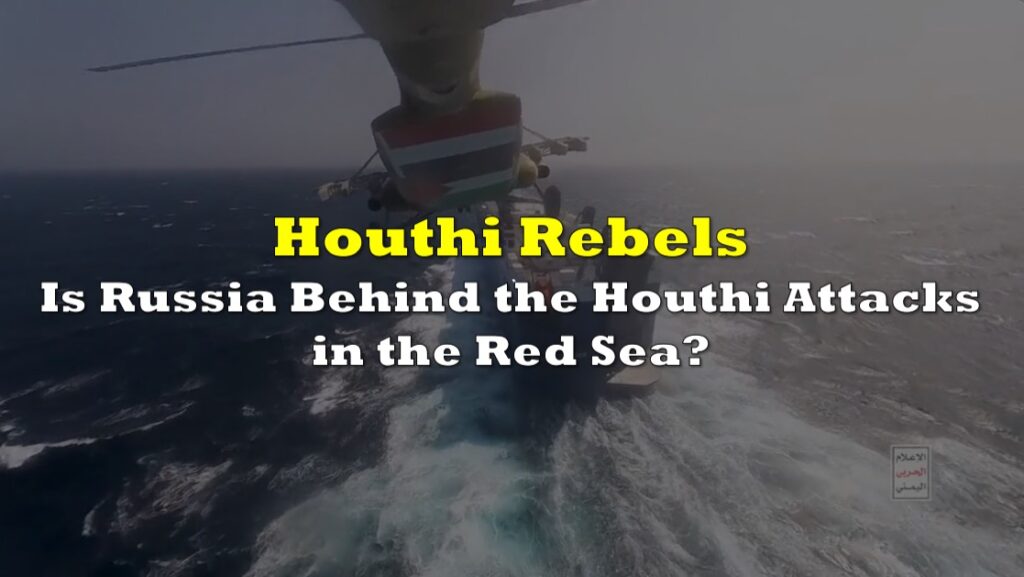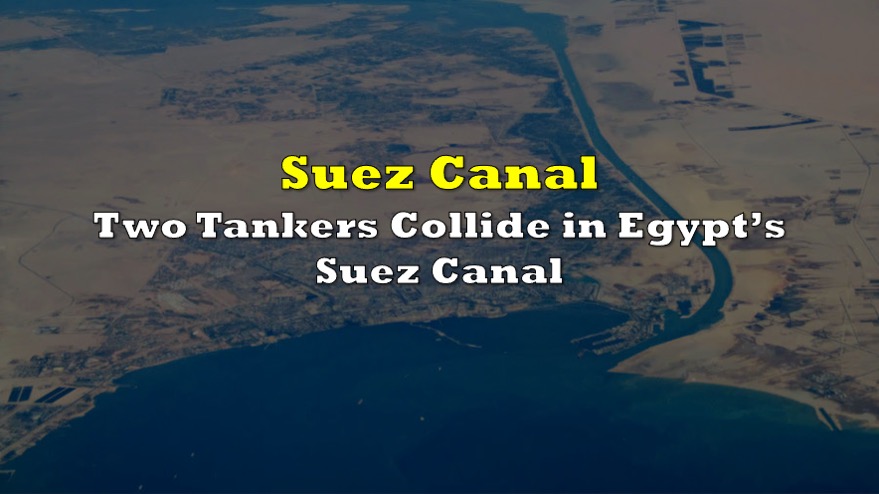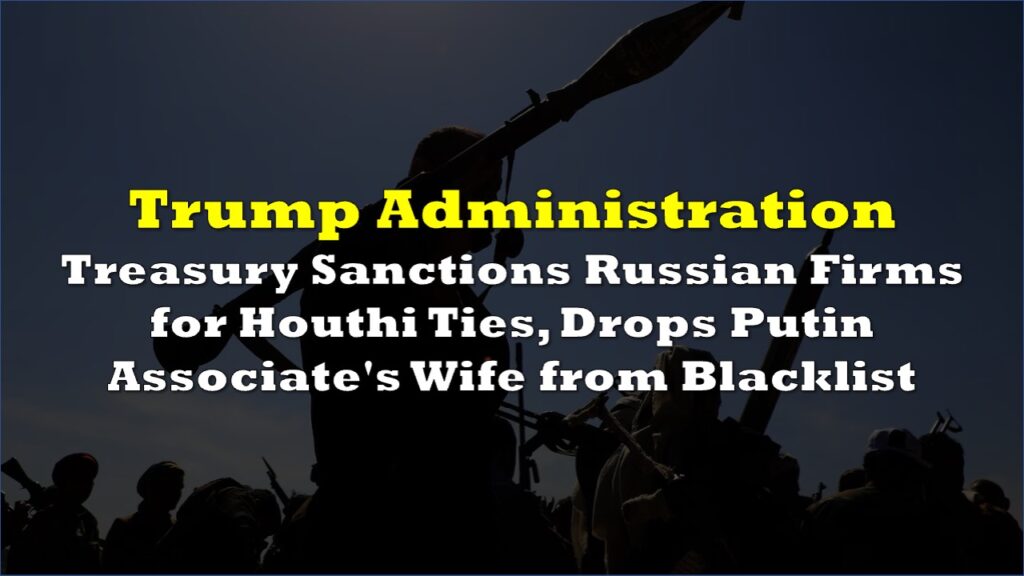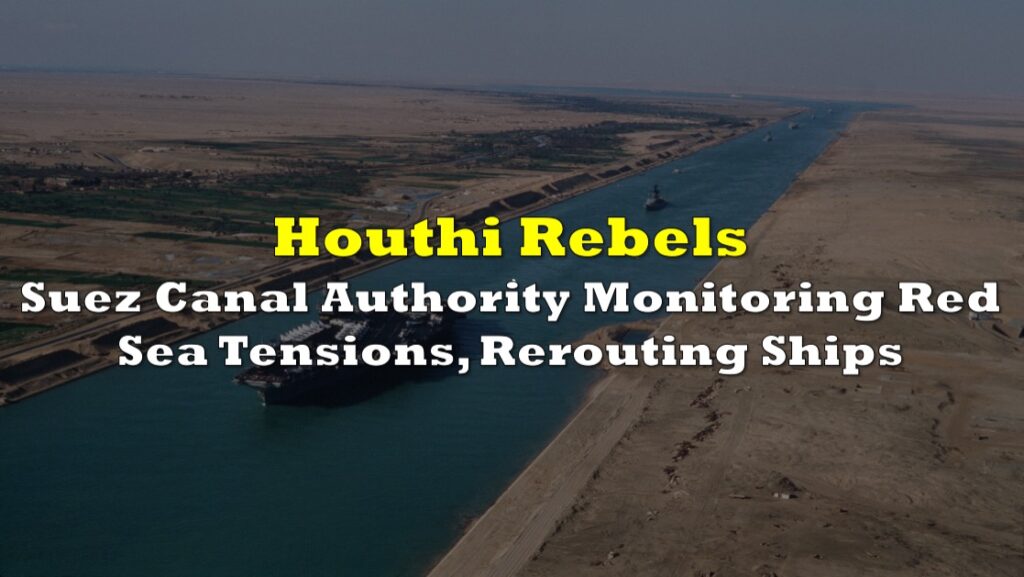In a move that could have severe repercussions for Egypt’s already fragile economy, Maersk, one of the world’s leading shipping companies, has announced the suspension of shipping through the Red Sea and Suez Canal “until further notice.” The decision follows a recent attack on one of its vessels by Houthi militants, prompting concerns about the security of the vital maritime trade route.
An indefinite closure of the Suez Canal, responsible for ferrying up to 30% of global container trade, could potentially push Egypt into bankruptcy. The suspension comes as international shipping giants express anxiety over attacks on ships in the Red Sea by Iranian-backed Houthi militants, seeking retribution against Israel for its military actions.
So now Maersk has given up on Red Sea.
— Marco Castelli (@macastel3) January 2, 2024
If nobody intervenes, we lose Suez Canal and we are back to 100 years ago navigation 🤦♂️ pic.twitter.com/aWzr8FReDF
The Danish shipping company initially initiated a 48-hour pause in transits through the Red Sea after the attack on the Maersk Hangzhou. The vessel was targeted just days after Maersk had resumed operations in the region following the establishment of a US-led international naval mission to protect shipping.
Maersk’s decision to extend the suspension and reroute some vessels around the Cape of Good Hope reflects the precarious situation in one of the world’s crucial trade routes. Other major shipping firms, including Hapag-Lloyd, Evergreen Line, and MSC Mediterranean Shipping Company, have also ceased using the Suez Canal due to security concerns.
The extended disruption to global supply chains is already causing a surge in freight costs and longer delivery times. Judah Levine, Head of Research at logistics company Freightos, notes that longer voyages for diverted services could lead to longer lead times for importers, potentially resulting in port congestion.
Egypt in peril
While the economic impact of the extended suspension remains uncertain, Egypt is already grappling with a deepening debt crisis.
Despite possessing a formidable naval arsenal, including two Mistral-class LHDs, 12 modern frigates, and 10 corvettes, the current regime in Cairo seems hesitant to take direct action, relying instead on international partners to safeguard the Red Sea.
An indefinite closure of all traffic through the Suez canal in 2024 could well tip Egypt into bankruptcy.
— Alexander Clarkson (@APHClarkson) January 2, 2024
In trying to strike a blow against Israel the Houthis will have collapsed Egypt instead. https://t.co/it1R530qZQ
With the Suez Canal contributing approximately 5% of Egypt’s total revenue, any prolonged closure could have severe repercussions on the country’s already fragile financial landscape.
Recent economic indicators paint a grim picture, with Egypt experiencing a deepening debt crisis. Minister of Finance Mohamed Maati recently revealed a staggering 97% debt-to-GDP ratio, marking a significant increase from June 2022. The country faces external financing needs of at least $41.5 billion, further complicating its economic woes.
A closer look at Egypt’s financial structure reveals a complex web of public funds, including economic authorities, special slush funds, and military-owned enterprises. The economic authorities, operating at a loss, rely on state budget support, while special slush funds, totaling $9.4 billion, lack oversight.

Military-owned enterprises, enjoying tax exemptions, add another layer of opacity to Egypt’s financial landscape. Abdel Fattah El-Sisi, Egypt’s president, has committed to reform these entities as part of IMF loan conditions.
The fragmented budgetary landscape not only allows the regime to obscure graft but also weakens parliamentary oversight. This is evident in major projects like the New Administrative Capital, where public funds are utilized without parliamentary scrutiny, risking the long-term financial health of the nation.
Meanwhile, global shipping costs are surging, with the price to ship a 40-foot container from Shanghai to New York reaching almost $5,000. This sharp increase, although significant, remains below the pandemic peak in late 2021, according to Freightos data.
Information for this briefing was found via CNN, Carnegie, OECD, and the sources mentioned. The author has no securities or affiliations related to this organization. Not a recommendation to buy or sell. Always do additional research and consult a professional before purchasing a security. The author holds no licenses.

